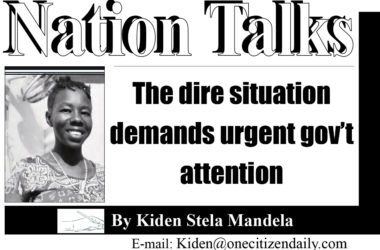The inflation rate has inflicted massive hardship on the citizens of our country. High inflation not only erodes the purchasing power of consumers but also breeds uncertainty, often leading to elevated interest rates and a devaluation of the national currency. Regrettably, South Sudan finds itself caught in this economic marsh.
The root cause of this dire situation can be traced back to the failure of economic policies implemented by our policymakers. Their inability to achieve quantified objectives has left the country grappling with the consequences. Moreover, the government’s approach to addressing the economic crisis has been split, lacking a comprehensive, multi-sectoral strategy.
One obvious issue exacerbating the situation is the lack of direct foreign investments in our economy. Attracting large foreign capital should be a top priority for the government. However, before this can happen, a conducive environment must be fostered, one that instils confidence in investors on legal, political, and security fronts.
The South Sudan system of generating income or non-oil revenues since independence was not well structured as well as given priority. There was a lot of aid money and oil was smoothly flowing, but nobody headlined an effort to nurture the non-oil revenues sector. However, mismanagement also made us not realize the outcome of both the oil money and donors’ aid.
The current inflation crisis is aggravated by the scarcity of hard currency reserves, both within the country and in the hands of traders. The lack of an adequate supply of hard currency has weakened the value of our local currency, as investments and inflows remain insufficient.
Since achieving independence in 2011, the country has been overwhelmed by inadequate infrastructure, including road connectivity, aviation systems, water transport, and communication technology. These deficiencies impede economic growth and development.
The government must take bold and decisive action to rectify the economic situation. Urgent measures must be implemented to stabilize the economy and alleviate the suffering of our needy citizens.
This requires comprehensive economic reforms, including the diversification of revenue sources, attraction of foreign investments, and improvement of infrastructure.
The road to economic recovery will be challenging, but with concerted efforts and the right policies in place, South Sudan can overcome these obstacles. We hope that the government will prioritize the welfare of its citizens and work tirelessly to steer the country towards stability and prosperity. Otherwise, the poor citizens are already in a dilemma.
God Bless South Sudan.
Be Right there!




